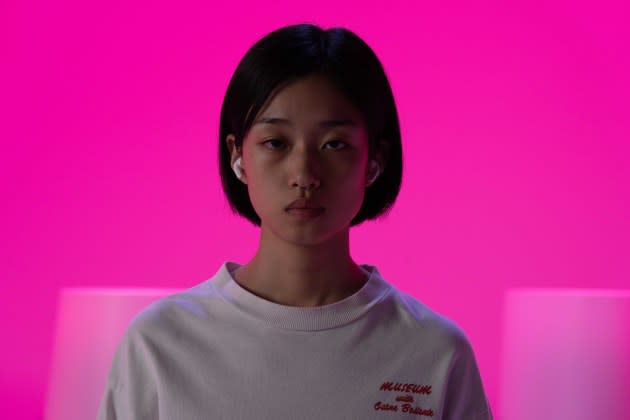‘Desert of Namibia’ Review: A Meandering Chronicle of a Listless Japanese Zoomer

“Desert of Namibia,” about a caustic 21-year-old Japanese wanderer, embodies its protagonist’s listlessness to a fault. Director Yôko Yamanaka was still a teenager when she made her debut feature “Amiko” in 2017, a sharply funny high school film with the jagged, quick-cut energy of a YouTube travel vlog. It marked her as a Gen Z voice to watch. “Desert of Namibia” similarly follows a young woman trying to find herself (aged up to match Yamanaka’s own life experience, seven years later), but it swings stylistically in the opposite direction, holding and zooming for hilariously, sometimes painfully long. Your mileage may vary, as the film has a tendency to meander off course, but that is exactly its intention.
Actress Yuumi Kawai is immediately magnetic as Kana, a young Tokyo woman hinted to have roots in a different city or country, but the film is often opaque about important details (like the mystery of its title, toward which it provides only elliptical hints). While shot with straightforward clarity, its narrative, like its protagonist’s mood, feels enveloped by fog. When we first meet Kana, as she catches up with a friend, we know little about her apart from her baggy clothes and her mildly sunny disposition that seems to easily slip. Before long, she start sliding into a funk during this introductory scene, when she’s told of an acquaintance’s suicide — news on which she can’t fully concentrate because of an unrelated conversation happening nearby.
More from Variety
'Norah' Review: A Striking Debut About Artistic Repression in '90s Saudi Arabia
'Lula' Review: An Incomplete Portrait of Brazil's Fiery Left-Wing President
By capturing this overlapping chatter with ingenious sound and subtitle design, Yamanaka creates a sense of distraction around Kana and about the film as a whole. This also bleeds into Kana’s story of being caught between two different romantic relationships. The man she lives with, Honda (Kanichiro), reflects an air of success, but their dynamic lacks any on-screen spark and chemistry. This pushes her toward the free-spirited artist Hayashi (Daichi Kaneko) and toward a relationship whose novel excitement soon settles into a mutually destructive and even violent status quo. The film often captures Kana as a victim of male social structures (professionally, personally and even medically, when she tries to seek help) but rather than being wholly culpable for her state of mind or a helpless victim, she remains trapped in a vicious cycle of cause and effect, with little promise of escape.
Yamanaka captures Kana and Hayashi’s outbursts with a sense of remove, though this has a dueling impact on how the story comes across. In brief moments, the actors’ physical commitment to anguished scuffling — from a place of dissatisfaction that neither character understands — is devastating to watch. But the more it goes on, the more numbing these scenes become. This may suit Yamanaka’s intentions of telling a story about depressed characters falling into a passionless routine, but it occasionally strays into comedic territory when filmed at a distance.
Yamanaka lets her tonal control lapse during these vital moments, but she maintains deft command over absurd timing when the film refuses to cut away from mundane moments and activities, like establishing shots of Kana simply walking from one location to the next. It’s a flourish that feels grinding and punishing at first, to the point that “Desert of Namibia” starts to seem more suited for home viewing than in a theater, if only so that one can fast-forward through these scenes. However, the film becomes self-reflexive about this idea as well, with a brain-tickling, meta-textual flourish that hints at Kana’s own desire to be able to skip through the drawn-out scenes of her daily life.
This also leads to the puzzling conundrums about whether a movie that’s “bad on purpose” is still “bad,” the way a person might be “bad” if they try hard enough to push people away. Though in this case, Yamanaka’s work defies such binaries by being the ideal version of its imperfect self. Like Kana, it’s gloomy, purposeless and hard to love — but that only makes the film, and its lead, feel more pulsating alive.
Best of Variety
Sign up for Variety’s Newsletter. For the latest news, follow us on Facebook, Twitter, and Instagram.
